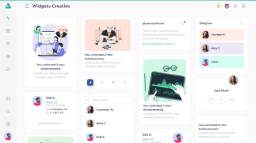七喜联盟,注册|The Pros and Cons of Pay-Per-Click Advertising for Businesses
The Pros and Cons of Pay-Per-Click Advertising for Businesses
Pay-per-click (PPC) advertising is a form of digital marketing in which advertisers pay a publisher (usually a website, search engine, or social media platform) each time an ad is clicked. PPC is a way to buy visits to your website, rather than earning those visits organically. Search engine advertising is one of the most common types of PPC.
PPC advertising can be a very effective way to reach new customers and grow your business, but it's important to weigh the pros and cons carefully before deciding if it's the right marketing strategy for you.
Pros of PPC Advertising
Targeted Advertising: PPC advertising allows you to target your ads to specific demographics, interests, and keywords. This means that your ads will be seen by people who are more likely to be interested in what you have to offer.
Measurable Results: PPC advertising provides detailed data on the performance of your ads. This data can be used to track your progress and make adjustments to your campaign as needed.
Cost-Effective: PPC advertising can be a cost-effective way to reach new customers. You only pay when someone clicks on your ad, so you're not wasting money on ads that aren't being seen.
Quick Results: PPC advertising can generate results quickly. You can start seeing traffic to your website within hours of launching your campaign.
Flexibility: PPC advertising is flexible and can be easily adjusted to meet your changing business needs. You can change your budget, target audience, and ad creative at any time.
Cons of PPC Advertising
Competitive: PPC advertising can be competitive, especially in popular industries. This can make it difficult to get your ads seen by your target audience.
Costly: PPC advertising can be expensive, especially if you're targeting a large audience. The cost per click can vary depending on the keyword, industry, and competition.
Complex: PPC advertising can be complex to set up and manage. It's important to have a good understanding of how PPC advertising works in order to create a successful campaign.
Requires Ongoing Management: PPC advertising campaigns require ongoing management. You need to monitor your performance data and make adjustments to your campaign as needed.

Click Fraud: PPC advertising is susceptible to click fraud, which is when someone clicks on your ad without any intention of buying your product or service. This can waste your advertising budget.
Conclusion
PPC advertising can be a very effective way to reach new customers and grow your business, but it's important to weigh the pros and cons carefully before deciding if it's the right marketing strategy for you. If you're considering using PPC advertising, it's important to do your research and choose the right platform and keywords for your campaign. You also need to be prepared to invest time and money into managing your campaign.
Here are some additional tips for using PPC advertising effectively:
Start with a small budget. This will help you to test the waters and learn how PPC advertising works before you invest a lot of money.
Choose the right keywords. The keywords you choose will determine who sees your ads. Make sure to choose keywords that are relevant to your business and that are likely to be searched by your target audience.
Create compelling ad copy. Your ad copy is what will convince people to click on your ad. Make sure it's clear, concise, and relevant to your target audience.
Monitor your performance data. PPC advertising platforms provide detailed data on the performance of your ads. Use this data to track your progress and make adjustments to your campaign as needed.
Be patient. PPC advertising takes time to generate results. Don't expect to see a huge influx of traffic to your website overnight. Just keep at it and you'll eventually start to see results.
